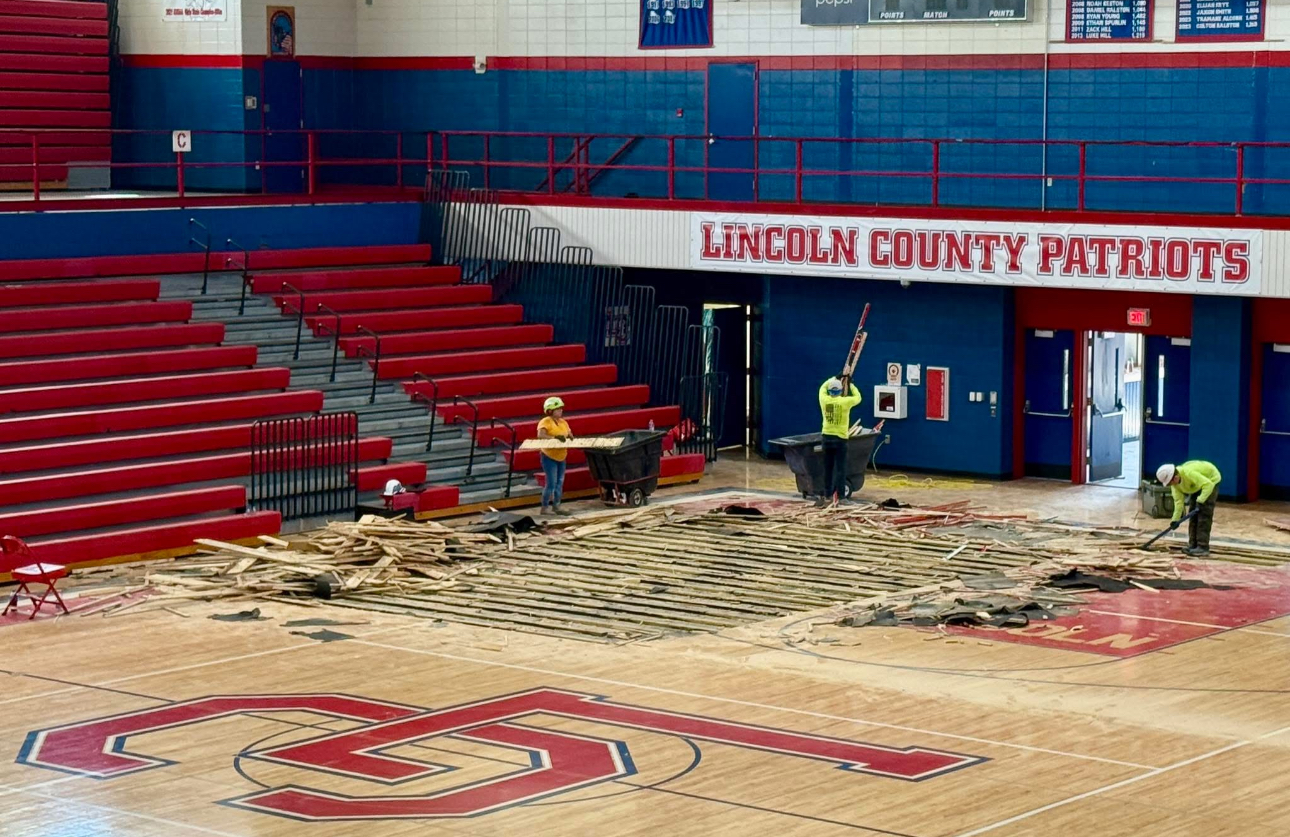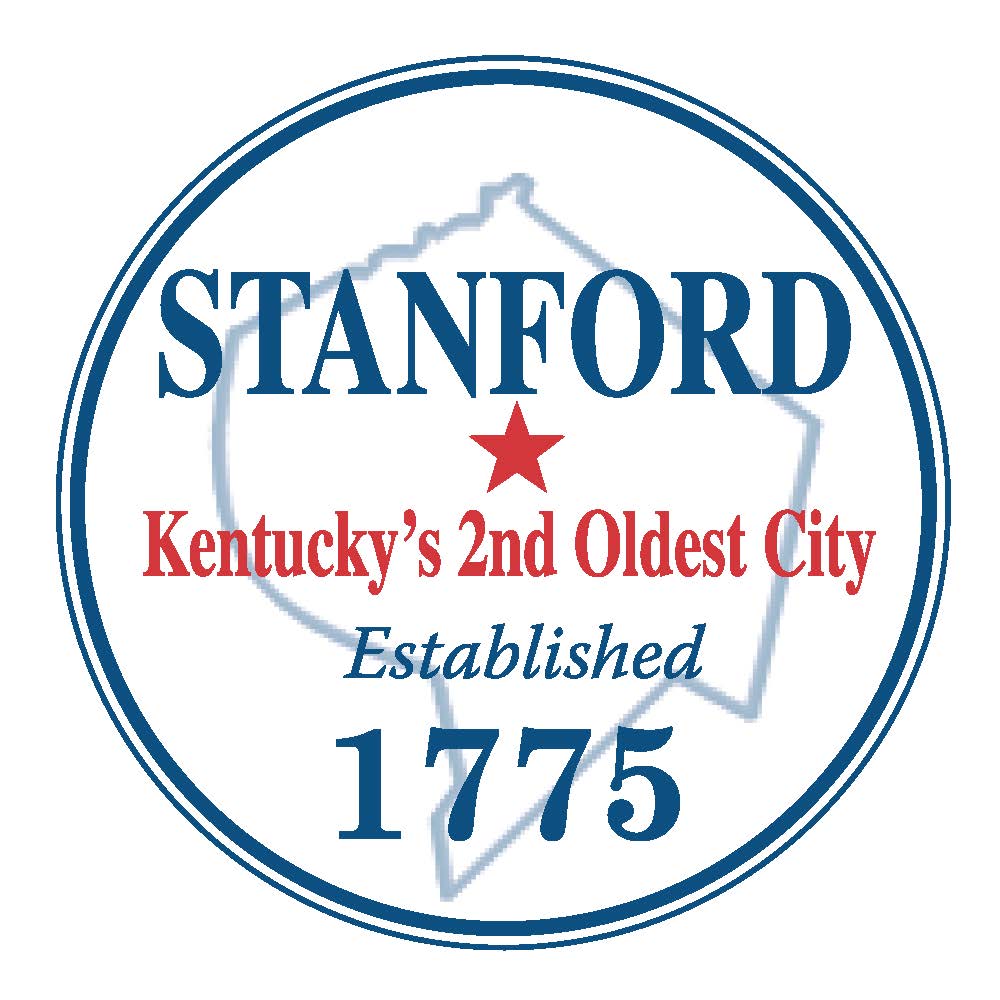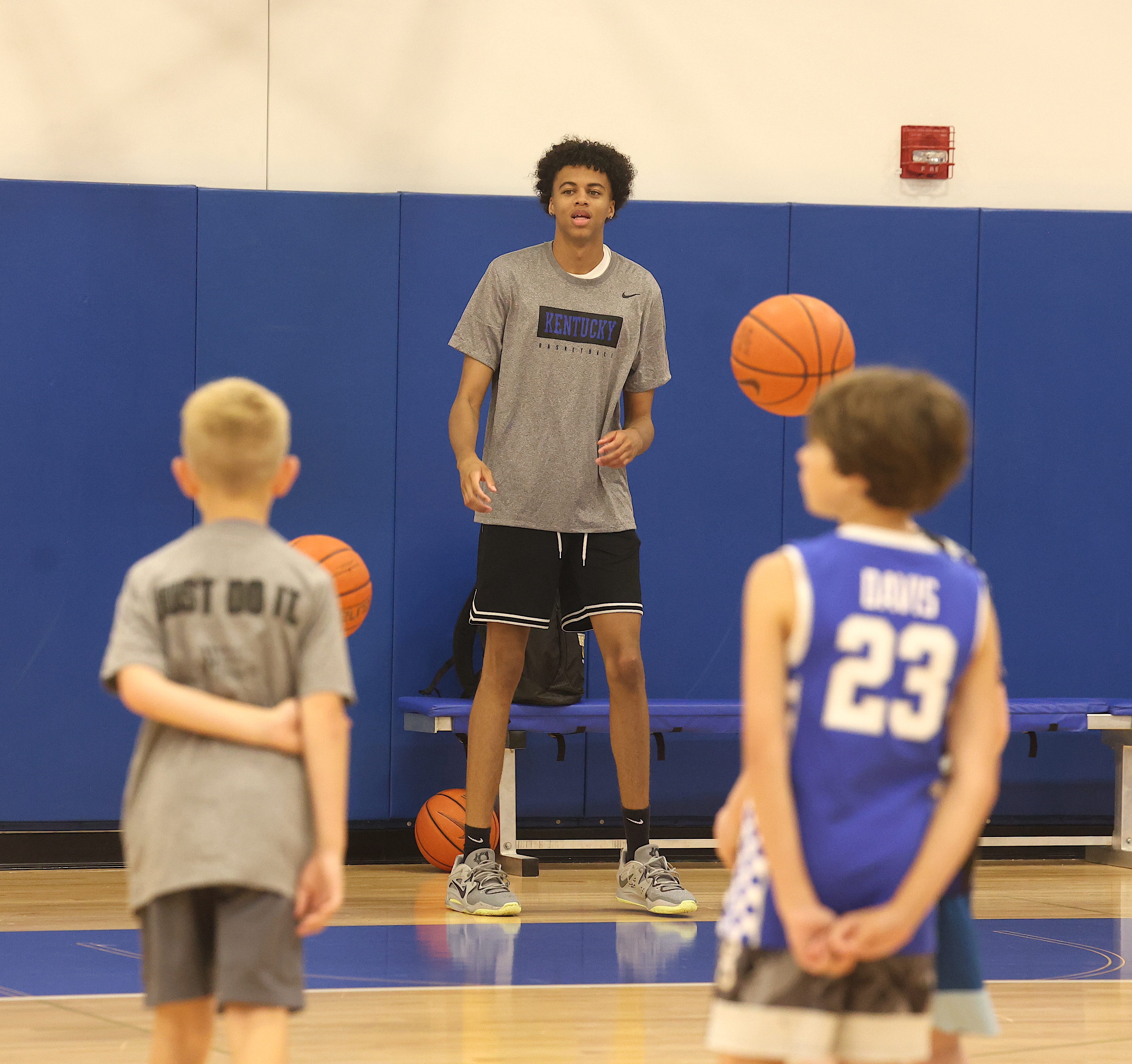Across Kentucky, election workers needed ahead of general election; Election officials say there is a shortage of poll workers
Published 8:34 am Wednesday, September 20, 2023

- Polling booths stand empty on Tuesday, May 16, 2023, at St. Luke’s United Methodist Church in Lexington. Kentucky Lantern photo by Abbey Cutrer
|
Getting your Trinity Audio player ready...
|
By McKenna Horsley
Kentucky Lantern
For several years, Gregory and Wynella Bethards have worked at the polls on Election Day in Jefferson County.
The Louisville couple said they enjoy being part of the process. Gregory said “it’s a civic duty, privilege and obligation to serve the community,” but there is some anxiety before voters come through the doors.
Every Election Day begins early, he said. Election workers want to make sure everything, including voting equipment, is ready for when polls open at 6 a.m.
Wynella added another possible curveball — maybe another poll worker “for some reason didn’t show up.”
In recent elections, Wynella said she has noticed a drop in election workers, a trend seen by election officials across Kentucky. While health concerns prompted by the covid pandemic are a primary reason, some poll workers may worry about their safety following the contentious 2020 presidential election where Donald Trump has pushed the lie that the election was stolen from him through election fraud.
“I think Kentucky’s elections are safe and secure. I know the clerks do everything they can to ensure that the election officials, the poll workers are kept safe during their time at the polls,” Karen Sellers, State Board of Elections executive director, told Kentucky Lantern.
‘It is a big job’
Sellers said most poll workers are retirees. However, amid the coronavirus pandemic, that age group may have concerns about their health and want to avoid possible exposure to illness.
In the 2020 presidential election year, Democratic Gov. Andy Beshear and Republican Secretary of State Michael Adams agreed to changes to Kentucky’s election procedures in the wake of the pandemic. No-excuse absentee ballots and extended early voting periods were available to voters, meaning that fewer polling locations were needed on Election Day.
Sellers said election workers take their jobs “very seriously.” State law requires party parity at each precinct, meaning an equal number of registered Democrats and Republicans.
“It is a big job. And it’s an important job. And we want everyone to serve, if they can,” she said. “And if they can, reach out to their county clerk and let them know that they’re interested in serving.”
Andrew Imel, who is in his first term as the Greenup County clerk, said his office made it through the primary election “just on the skin of our teeth.” The county has 16 polling locations and needs at least 64 workers, not counting alternates, to meet the minimum four-person per poll staffing level. The office had only one alternate poll worker left.
Before he was elected in November 2022, Imel said he noticed a local shortage of poll workers as well as a lower voter turnout.
“We had a lot of veteran poll workers that personally called me and said they’re no longer (able to) help and stuff like that,” Imel said. “So we really did more or less run into a wall with that.”
Bobbie Holsclaw, who is serving her seventh term as the Jefferson County clerk, said her office sees a shortage of poll workers “just about every election” going back several years. Her office needs between 2,300 and 2,400 poll workers to oversee each election.
Party parity is a challenge for the county, she said. Jefferson County, which has more Democratic voters, has struggled with recruiting Republicans. However, local parties are required by law to provide names of possible workers to county clerks.
Election officials interviewed by the Lantern say heightened election scrutiny may contribute to their difficulty of recruiting election workers.
Holsclaw said “there’s some truth to that” and added that some churches and businesses no longer want to be polling locations.
Since the results of the 2020 presidential election, the nation has seen a rise in election doubt. Despite Democrat Joe Biden’s win, Trump, who is seeking the Republican presidential nomination in 2024, continues to push false claims of victory and cast doubt on the security of elections. According to an August CNN poll, 61% of Americans said Biden did legitimately win enough votes to win the presidency, while 38% believe that he did not.
Sellers said Kentucky has not had serious threats at polling locations. She said county sheriff departments work closely with county clerks during elections for security.
Holsclaw also said Jefferson County has not had serious security problems on Election Day.
In Greenup County, election doubt has not been a concern, Imel said.
Recruitment efforts
For those who do the job, Sellers said they find it “rewarding.”
“If you do it once, you understand what an important job it is for the voter and the voting experience and helping people be able to cast their ballots and have a voice in an election,” Sellers said.
Before Election Day, workers are required to take a four- to six-hour training course. On the day of the election, they may have to answer questions from voters about using machines or other questions about the process. Some workers also assist with early voting days ahead of Election Day. Counties also recruit alternates to work as back up.
“It’s a 14-hour day for a person to work the polls. They usually have to come at 5 a.m. They are responsible for assisting and setting up the equipment,” Sellers said. “Really, they’re the first person that greets the voter and assists them with the voting experience.”
Poll workers are paid, but their wages vary from county to county. When Holsclaw first started as clerk, the pay was around $100 for the day plus $25 for training, and increased to $200 a day several years ago. Last year, the pay rose to $300 in Jefferson County, a move that Holsclaw said increased interest.
Holsclaw said that her office has “tried very hard” to get younger people involved, but “you don’t see the enthusiasm or the excitement among younger people as you have the older generation.” In addition to working closely with local political parties, Holsclaw’s office tries to recruit election workers by visiting community groups, like veterans at the local VFW, talking with college students or going to local fairs and festivals.
“I don’t think really that Kentucky is any different than any other states (in that regard),” she added. “I think it’s kind of a trend that’s across the country.”
Imel said his office relies on other poll workers to recruit, spreading the need through word of mouth as well as posting information on social media. The election board also speaks with other committees.
Looking ahead, Imel said his office is thinking about how to improve voter turnout, which includes taking steps like getting people registered to vote.
“Once they’re registered to vote, it would more or less be a domino effect. We’ll just keep them in the circle if they want to be a poll worker.”
As for the Bethards, being an election worker is a way to serve their community. For people who are considering being a poll worker, Wynella said not to be intimidated by the training because they will likely work with other experienced poll workers on Election Day.
“I just enjoy being part of the process,” Wynella said. “I like to see who all gets out and votes.”





